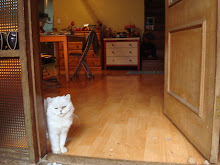Malala Yousafzai, the Pakistani girl shot by the Taliban for advocating education for girls, marked her 16th birthday with an impressive speech at the United Nations, where she said education could change the world.
Wearing a pink head scarf, Malala told UN Secretary-General Ban Ki-moon and nearly 1,000 students from around the world attending a Youth Assembly at UN headquarters in New York that education was the only way to improve lives.
"Let us pick up our books and pens. They are our most powerful weapons. One child, one teacher, one pen and one book can change the world. Education is the only solution," she said.
"The terrorists thought that they would change my aims and stop my ambitions but nothing changed in my life, except this: weakness, fear and hopelessness died. Strength, power and courage was born."
The UN has declared her birthday, July 12, as "Malala Day".
| |
| Malala Yousafzai's address to the UN - full video |
She left a Birmingham hospital in February after she recovered from surgery during which doctors mended parts of her skull with a titanium plate and inserted a cochlear implant in her left ear to help restore hearing.
Malala used her speech at the UN to ask the UN secretary-general and any listening world leaders on the need to keep a promise to provide universal primary education by the end of 2015.
She also handed over a petition to Ban signed by about four million people calling on the 193 UN members to finance teachers, schools and books to meet the education.
"From the day that terrible shooting - assassination attempt - took place, Malala Yousafzai is a symbol for the rights of girls, and indeed the rights of all young people, to an education," said UN spokesman Martin Nesirky.
Taliban threats
UN Special Envoy for Global Education, former British Prime Minister Gordon Brown, said Friday's event was not just a celebration of Malala's birthday and her recovery, but of her vision.
"Her dream that nothing, no political indifference, no government inaction, no intimidation, no threats, no assassin's bullets should ever deny the right of every single child ... to be able to go to school," said Brown.
Now, more girls are attending schools in the Swat Valley. But the UN estimates that 57 million children of primary school age do not get an education - half of them in countries at conflict, such as Syria.
Pakistan has 5 million children out of school, a number only surpassed by Nigeria, which has more than 10 million children out of school, according to UN cultural agency UNESCO. Most of those are girls.
James Bays, Al Jazeera's Diplomatic Editor, reporting from the United Nations, said that campaigners for global education are hoping that this speech will make a change in trying to encourage countries around the world, to support the plan to try and get all children in school by 2015.
According to Ban's annual report on children and conflict, 115 schools were attacked last year in Mali, 321 in the occupied Palestinian territories, 167 in Afghanistan, and 165 in Yemen.
Malala and her family briefly left Swat during a government offensive on the Taliban-controlled territory.
On their return, they were threatened by armed groups before the attack on October 9 last year.
The family now lives in Birmingham, where Malala has undergone surgery and rehabilitation. In March, Malala joined pupils at Edgbaston High School for Girls in the neighbourhood.
She is one of the favourites to become the youngest-ever Nobel Peace Prize laureate this year.
She has already been named as one of Time magazine's most influential people in 2013 and has reportedly secured a $3m contract for a book on her life story.
Malala's Forgotten Sisters: read here.


















 sarahinsouthkorea
sarahinsouthkorea
